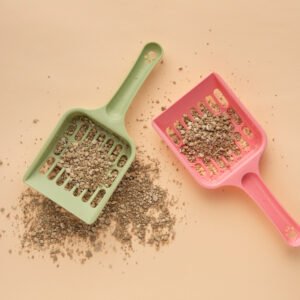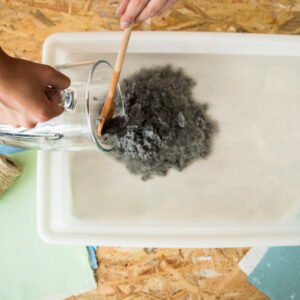Have you ever wondered why some drilling operations run smoothly while others face costly delays and complications? The answer often lies in one critical component the bentonite used in drilling fluids. When it comes to oil and gas drilling in India, choosing the right bentonite grade isn’t just important – it’s absolutely essential for project success. That’s where API 13A Section 9 standards for OCMA bentonite come into play, setting the benchmark that separates premium drilling materials from ordinary clay.
In this post, I’ll walk you through why these specifications matter so much, how they ensure drilling efficiency, and what makes them the industry’s gold standard.
What Makes API 13A Section 9 So Special?
Let me start with the basics. API 13A Section 9 defines the requirements for bentonite used as a viscosifier in drilling fluids, ensuring it contains over 85% Smectite, the active clay component. This isn’t just a number on paper. It represents years of industry research and real-world testing that determined what actually works in the field. When you’re drilling thousands of feet into the earth, you need materials that perform consistently under extreme conditions.
The API 13A specification ensures your bentonite will:
- Maintain proper viscosity levels throughout the drilling process
- Provide effective fluid loss control
- Create stable filter cakes
- Perform reliably in various temperature conditions
Think of it like choosing between generic medicines and tested, certified pharmaceuticals. Both might look similar, but only one gives you the assurance of proven performance.
The Science Behind OCMA Grade Bentonite
OCMA bentonite (Oil Companies Materials Association grade) represents some of the highest quality drilling mud additives available. Both API Standard 13A and OCMA specifications play a crucial role in ensuring the quality and performance of bentonite used in drilling fluids.
Here’s what makes OCMA grade special:
Superior Montmorillonite Content
- Contains high percentages of sodium montmorillonite
- Provides exceptional swelling properties
- Ensures consistent rheological characteristics
Strict Quality Parameters
- Minimum viscosity requirements at 600 RPM
- Controlled yield point specifications
- Precise fluid loss measurements
Proven Performance Standards
- Tested under actual drilling conditions
- Validated across different geological formations
- Consistent results across temperature ranges
When I see drilling operations using substandard bentonite, it reminds me of trying to build a house with weak foundation materials. You might save money initially, but the long-term costs are always much higher.
Why These Standards Matter for Indian Drilling Operations
India’s diverse geological conditions demand premium quality drilling materials. From the challenging formations in Rajasthan to offshore drilling in the Arabian Sea, API 13A Section 9 compliant bentonite ensures your operations stay on track.
Regional Challenges Addressed:
- High temperature formations common in Indian wells
- Varied salinity levels in different regions
- Complex geological structures requiring stable drilling fluids
- Need for cost-effective yet reliable materials
Users must verify that their bentonite supply meets the 13A standard in order to achieve optimal performance in drilling projects. This verification process isn’t bureaucratic red tape it’s your insurance policy against drilling complications.
Key Performance Parameters You Should Know
Understanding the technical specifications helps you make informed decisions.
Here are the critical parameters that API 13A Section 9 addresses:
Viscosity Requirements
- Minimum 30 dial reading at 600 RPM
- Ensures proper hole cleaning capabilities
- Maintains cuttings suspension during operations
Yield Point Standards
- Specific values for different applications
- Critical for wellbore stability
- Prevents formation damage
Fluid Loss Control
- Maximum allowable filtrate loss rates
- Protects formation integrity
- Reduces drilling complications
Filter Cake Quality
- Uniform thickness requirements
- Minimal permeability standards
- Easy removal characteristics
These aren’t just technical jargon – each parameter directly impacts your drilling success and operational costs.
How Premium Bentonite Saves Money Long-Term
I often hear drilling contractors focus on upfront material costs. But let me share why this approach can be expensive:
Hidden Costs of Substandard Bentonite:
- Increased drilling time due to poor hole cleaning
- Formation damage requiring expensive remediation
- Equipment wear from inadequate lubrication
- Lost circulation problems
- Wellbore instability issues
Benefits of API 13A Compliant Materials:
- Faster penetration rates
- Reduced equipment maintenance
- Fewer circulation problems
- Better wellbore stability
- Lower overall drilling costs
When you calculate the total cost per foot drilled, premium OCMA bentonite almost always comes out ahead.
Real-World Applications and Success Stories
Bentonite API Grade is used to increase viscosity and reduce fluid‐loss in water‐base drilling fluids, providing cost‐effective means of achieving viscosity, fluid‐loss control and filter‐cake quality.
In Indian drilling operations, this translates to:
Onshore Applications:
- Effective in high-temperature wells
- Performs well in freshwater systems
- Suitable for various formation types
Offshore Operations:
- Compatible with seawater-based muds
- Maintains stability in marine environments
- Reduces environmental impact
Challenging Formations:
- Provides excellent shale stabilisation
- Prevents wellbore collapse
- Maintains hole gauge effectively
Quality Assurance and Testing Standards
At CMS Industries, we understand that API 13A Section 9 compliance isn’t optional – it’s essential.
Our quality assurance process ensures every batch meets these stringent standards:
Laboratory Testing
- Rheological property verification
- Filtration loss measurements
- Chemical composition analysis
- Performance validation
Field Testing
- Real drilling condition simulations
- Temperature stability assessments
- Contamination resistance evaluation
Continuous Monitoring
- Batch-to-batch consistency checks
- Regular specification updates
- Customer feedback integration
This comprehensive approach ensures you receive bentonite that performs exactly as expected in your drilling operations.
Choosing the Right Supplier for API Grade Bentonite
Not all bentonite suppliers are created equal.
When selecting your OCMA bentonite supplier, consider these factors:
Technical Capabilities
- ISO certification and quality systems
- Advanced testing facilities
- Technical support availability
Supply Chain Reliability
- Consistent production capacity
- Strategic location advantages
- Proven delivery track record
Industry Experience
- Understanding of local drilling conditions
- Experience with various applications
- Customer success stories
CMS Industries brings all these elements together with our strategically located facilities near Mundra and Kandla ports, ensuring reliable supply for your operations.
Environmental and Safety Considerations
API 13A Section 9 standards also address environmental and safety aspects:
Environmental Benefits:
- Natural, non-toxic material
- Biodegradable properties
- Minimal environmental impact
- Suitable for environmentally sensitive areas
Safety Advantages:
- Non-hazardous classification
- Safe handling characteristics
- Reduced workplace risks
- Compliant with safety regulations
These factors are increasingly important as the industry moves towards more sustainable drilling practices.
Future Trends and Developments
The drilling industry continues evolving, and API 13A Section 9 standards evolve with it.
Emerging Trends:
- Enhanced environmental specifications
- Improved performance parameters
- Better testing methodologies
- Integration with digital monitoring systems
Technology Integration:
- Real-time mud property monitoring
- Automated mixing systems
- Predictive performance analytics
- Enhanced quality control processes
Staying ahead of these trends ensures your operations remain efficient and compliant.
Making the Right Choice for Your Operations
Choosing API 13A Section 9 compliant OCMA bentonite isn’t just about meeting specifications.
It’s about ensuring your drilling operations run smoothly, safely, and cost-effectively.
Key Decision Factors:
- Total cost of ownership, not just material cost
- Supplier reliability and technical support
- Consistency of product quality
- Environmental and safety compliance
Questions to Ask Your Supplier:
- Can you provide detailed API test certificates?
- What quality control measures do you have?
- How do you ensure batch-to-batch consistency?
- What technical support do you offer?
The answers to these questions will help you identify suppliers who truly understand the importance of these standards.
Conclusion
The drilling industry’s success depends on using materials that meet the highest standards. API 13A Section 9 specifications for OCMA bentonite represent decades of industry knowledge and real-world testing. These standards ensure your drilling operations have the foundation they need for success – from proper hole cleaning to wellbore stability. When you choose suppliers who understand and comply with these specifications, you’re not just buying bentonite. You’re investing in drilling success, operational efficiency, and long-term cost savings.
At CMS Industries, we’ve built our reputation on delivering API 13A Section 9 compliant bentonite that meets the demanding requirements of Indian drilling operations. Whether you’re drilling in challenging onshore formations or complex offshore environments, choosing the right API 13A Section 9 standard OCMA bentonite makes all the difference in your project’s success.
Frequently Asked Questions
Q:1 What is API 13A Section 9 and why is it important for drilling operations?
API 13A Section 9 sets quality standards for drilling grade bentonite, ensuring it meets specific viscosity, fluid loss, and performance requirements essential for safe and efficient drilling operations.
Q:2 How does OCMA grade bentonite differ from regular bentonite?
OCMA grade bentonite meets stringent Oil Companies Materials Association specifications, offering superior montmorillonite content, better swelling properties, and more consistent performance compared to regular industrial bentonite.
Q:3 What are the key testing parameters for API 13A compliant bentonite?
Key parameters include minimum viscosity readings at 600 RPM, specific yield point values, controlled fluid loss rates, and proper filter cake characteristics, all tested under standardised conditions.
Q:4 Why should Indian drilling operations prioritise API certified bentonite?
India’s diverse geological conditions and challenging formations require reliable drilling materials. API certified bentonite ensures consistent performance across different temperatures, salinity levels, and formation types common in Indian wells.
Q:5 How can I verify if my bentonite supplier meets API 13A standards?
Request detailed API test certificates, verify laboratory accreditation, check batch consistency reports, and ensure the supplier has proper quality management systems like ISO certification for reliable compliance verification.







